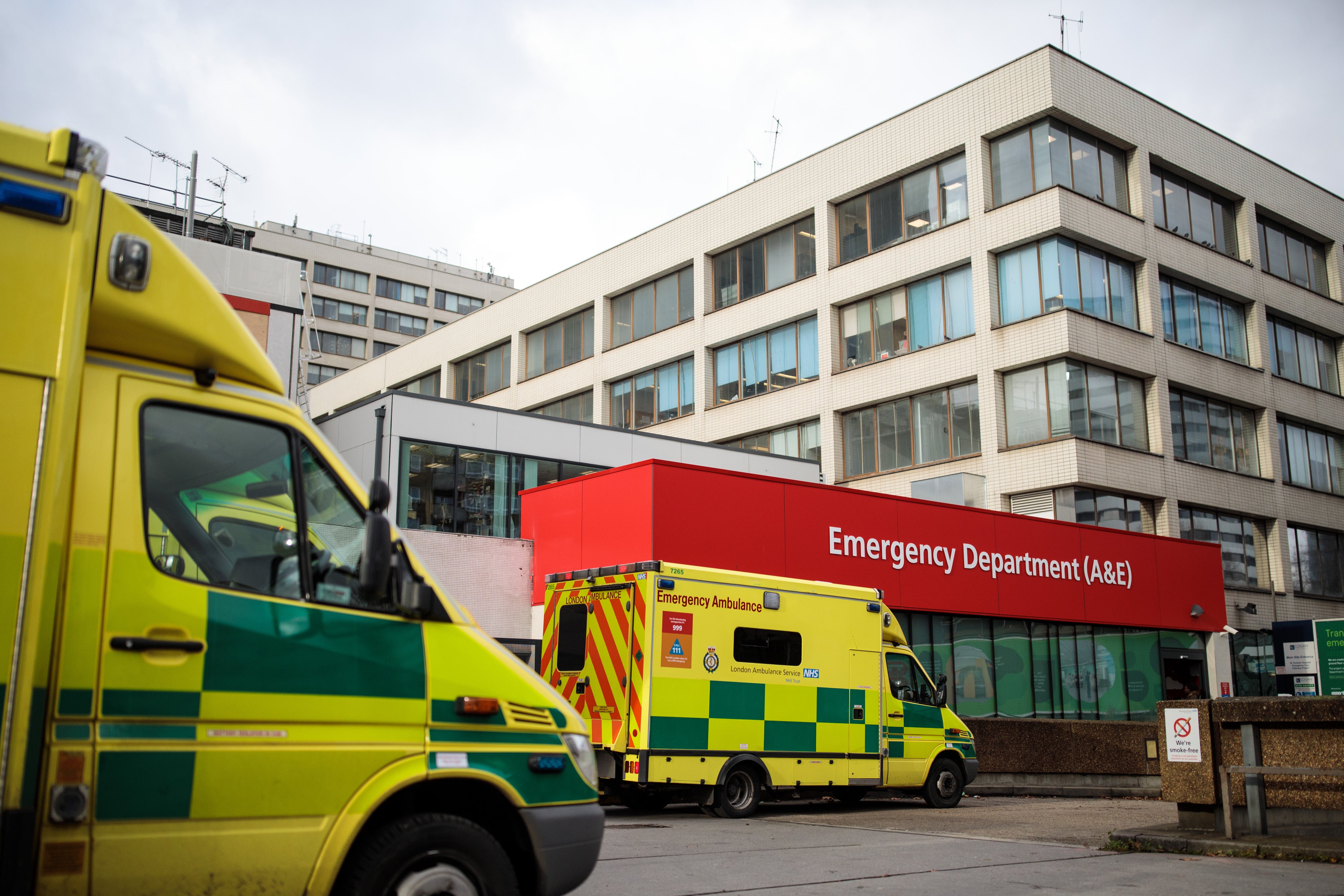AI software predicting daily A&E admissions rolled out in 100 NHS hospitals
Technology uses information from Covid infection rates to traffic on local roads to suggest how many patients will need care

New artificial intelligence software being rolled-out in NHS hospitals will be able to predict daily A&E admissions weeks in advance.
The software, which launched in 100 hospitals across England on Monday, analyses data including Covid infections rates, 111 calls and traffic to predict the number of patients that will seek emergency care.
It also takes into consideration public holidays, such as New Year’s Eve, when A&E is more likely to be busy.
The AI software is being rolled after trials showed an “impressive” ability to forecast admissions up to three weeks in advance.
The NHS believes it will help tackle the record waiting list and allow hospitals to more easily manage their patient and bed capacity, prepare for busier days and staff up when needed.
Nine trusts were given the software to use during the pandemic which notified them of expected spikes in cases, staff levels and numbers of beds and equipment necessary.
Admission forecasts are broken down by age allowing staff in appropriate wards - be it paediatric or elderly care - to be prepared.
However, hospitals receiving the new equipment have also been warned uncertainties within the data mean the system should be used as a “starting point to consider an operational response, not as a definite signal for action.”
The NHS says the technology will help hospitals better respond and treat patients and to continue their “unstoppable” service throughout the Covid crisis.
“Pressures remain high, but staff are determined to address the Covid backlogs that inevitably built up throughout the pandemic,” said Professor Stephen Powis, national medical director of NHS England.
“And while that cannot happen overnight, harnessing new technologies like the A&E forecasting tool to accurately predict activity levels and free up staff, space and resources will be key to helping deliver more vital tests, checks and procedures for patients.”
Subscribe to Independent Premium to bookmark this article
Want to bookmark your favourite articles and stories to read or reference later? Start your Independent Premium subscription today.

Join our commenting forum
Join thought-provoking conversations, follow other Independent readers and see their replies